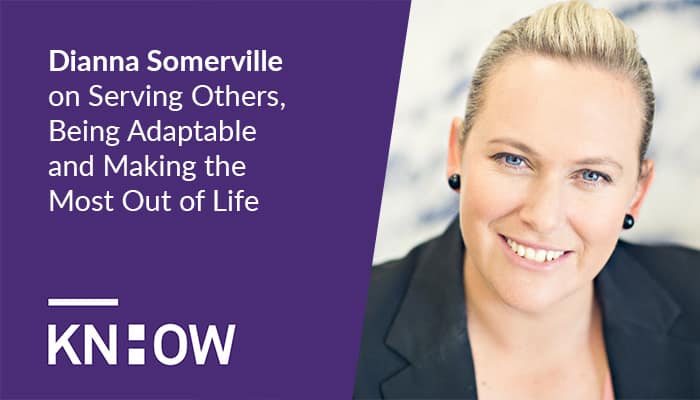It almost doesn’t matter what you’re doing – the more flexible and able to adapt to new circumstances you are, the better off you’ll be. This is true in relationships, careers, investments – you name it.
I recently had Dianna Somerville on the Get Invested podcast, and as someone responsible for changing perceptions and methodologies, and fostering change, she was a brilliant person to talk to. To quote Di, ‘gone are the days of working 30 years and getting a gold watch, you’ve got to move, be flexible and be bold – I think it’s all so exciting.’
Di has plenty of first-hand experience when it comes to flexibility. In other words, she’s walked her talk. Early on in her adult life, she joined the navy as an escape, jumped into that world only to return to regional Australia to be with her husband. There, she withstood a ten-year drought that threatened her husband’s farm. Fast forward to now and she’s manoeuvred into a leadership role, pushing development and innovation in rural communities around Australia.
Di’s someone who knows how to roll with the punches and adapt. So, how can we all be more like her? Here are four simple ideas:
1. Think creatively, don’t get stuck in ruts
Hardwire a way to explore different avenues for fostering creativity and accomplishing work-life goals. Those who stick to the same tried-and-true methods are likely to have decreased flexibility and will resist change.
2. Embrace ambiguity like it’s your job
Try to surround yourself with people, and create an environment where uncertainty is embraced. This is where the old ‘lean into it’ adage comes in. A conscious effort should be made to maintain a good mindset and to reframe situations in positive terms, as opposed to with labels like ‘failure’ or ‘mistake’.
3. Exercise your emotional intelligence muscles
A much-discussed focus on self-management skill courses, particularly those offered in graduate business programmes, is emotional intelligence. This means controlling and filtering your emotions in a ‘useful’ manner. The more self-control you have, the less likely you are to flip out when things inevitably change.
4. Shift your focus on a semi-consistent basis
The ability to maintain or shift focus in accordance with changing priorities is another critical skill that is likely to make you more competitive and successful in the future. This doesn’t mean you should become a multitasking automaton. It just means practice in dealing with shifting conditions and reap the rewards as a result.
Flexibility and adaptability are not genetic predeterminations that are carved into stone. Like most things in life, they just require a bit of intentionality, focus and effort. Find role models like Di to surround yourself with, follow some of our tips here and develop your own along the way as well.
Check out our entire conversation here!




